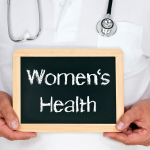In the spirit of Breast Cancer awareness month and promoting women’s health, we are excited to have had Dr. Susan Wolf in our Manhattan office today for our Making the Rounds Facebook Live video streaming series. Dr. Wolf is a Reproductive Endocrinologist specializing in infertility and menopause. Additionally, she is a breast cancer and melanoma survivor - and, “borderline ovarian” which she personally addressed in our discussion. Watch the session now!
melanoma
The USPSTF reports that the evidence for screening for skin cancer is weak. Some dermatologists are concerned, saying that lack of evidence of benefit doesn't mean there is no benefit. What should a patient think or do?
Oh, the ole sun debate: Get too much and you risk getting skin cancer; get too little and you may lack vitamin D. The struggle is real. So, how to find the balance?
Those brownish black spots on fully ripe bananas may unlock a faster diagnosis of skin cancer in humans, boosting survival chances.
A new report in JAMA Dermatology strengthens the link between indoor tanning and melanoma, the often-fatal skin cancer. Among the conclusions: the younger the woman who begins indoor tanning, and the more frequently she does it, the greater the risk she has of developing melanoma.
The FDA has proposed a ban on indoor tanning for those under the age of 18. The potential measure adds further support to the already well-known hazards of indoor tanning, with melanoma, the deadliest form of skin cancers, being the most concerning.
In August, Jimmy Carter was diagnosed with melanoma in his liver and brain. These lesions were addressed directly, he was put on Keytruda and now the former president is in remission. But since this new drug costs about $150,000 per year, we ask: Shouldn't we be talking about this?
The FDA has approved a two-drug combination for advanced melanoma patients. The combo, made by Bristol-Myers Squibb, is expected to cost $250,000 for one year. Expected gain in life is measured in months, but some subsets may experience a dramatic benefit. The real question is: Who are those patients?
Early detection of melanoma, the dangerous skin cancer, is essential to survival. Instructing high-risk patients, defined as those who previously had a melanoma, on skin self-exam with a partner-trainee may help in earlier detection.
The investigators found significant associations between the occurrence of melanoma and consumption of citrus fruits and citrus juices particularly oranges and grapefruit.
You may remember a large study published last year that seemed to find a link between Viagra use and melanoma. The study, from Harvard Medical School Brigham and Women s Hospital, included data on more than 51,000 men aged 40-75, and reported recent use of Viagra (sildenafil) with a near-doubling of the risk of malignant melanoma.
We ve written recently on America s lackadaisical use of sunscreen as well as the increasing rates of skin cancer, including deadly melanoma, reported by the CDC. Clearly, more must be done to educate the public on the importance of skin protection, and when and how often sunscreen should be applied to avoid skin damage. New technology in the form of smartphone apps and wearable
